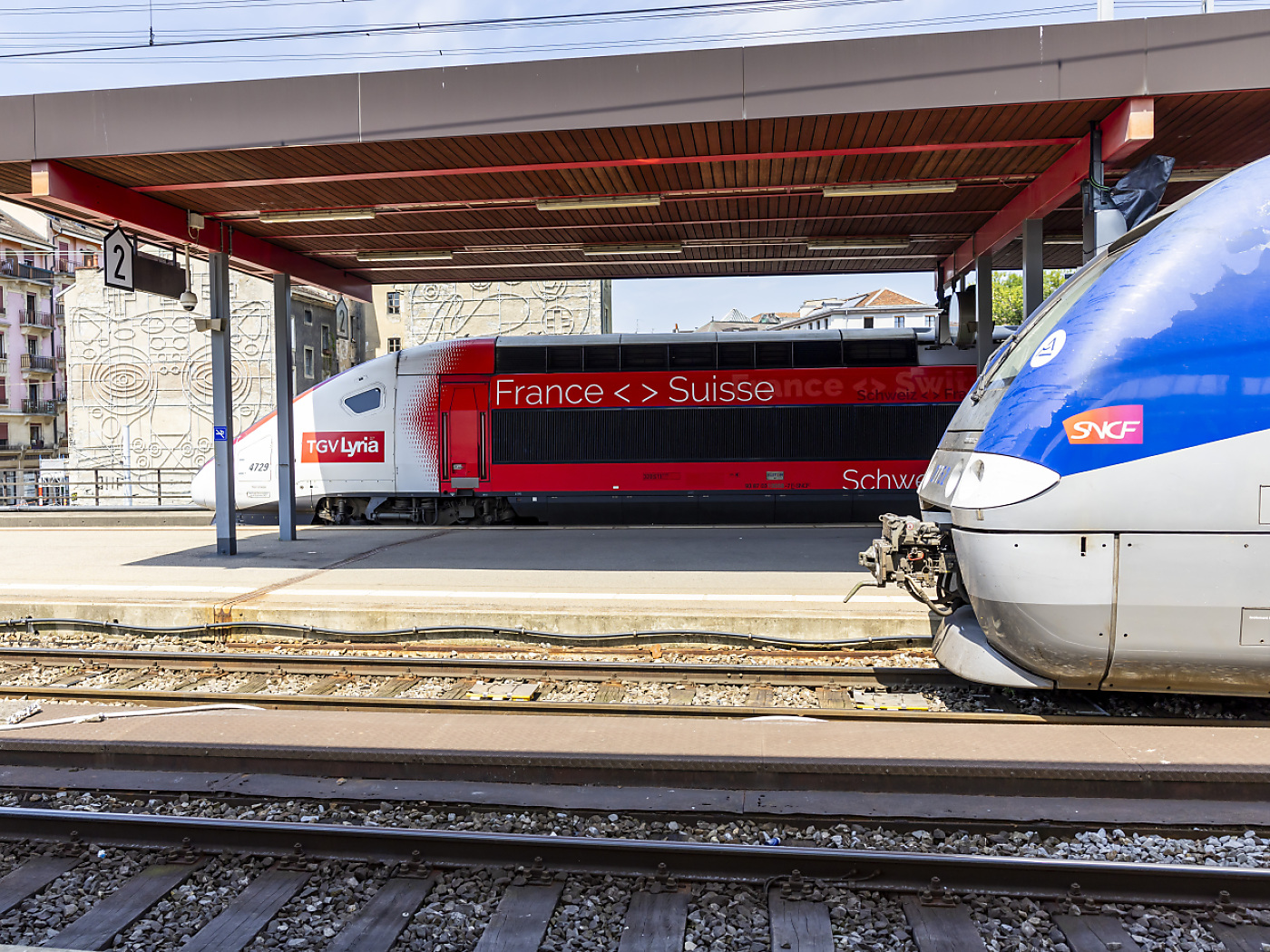
Transport group wants direct international rail links from Geneva

The Swiss Association for Transport and Environment (VCS) is calling for direct connections from Geneva to London, Amsterdam, Barcelona and Brussels.
These cities are among the ten most popular flight destinations from Geneva, yet they could be reached by train in less than eight hours, the VCS said on Tuesday.
“The international rail offer is unsatisfactory, the number of connections has fallen and the remaining ones are overloaded,” said Caroline Marti, President of the Geneva section of the VCS.
According to the association, just three destinations can be reached via direct daily connections from Geneva: Paris, Milan and Venice. Marseille is also an option, but only in summer. And while night trains run from Basel and Zurich to northern and eastern Europe, there are no longer any such connections from Geneva to western and southern Europe, despite the great potential, the VCS says.
+ Read more: night trains from Switzerland face tough revival
The association thus outlined these findings in a report addressed to cantonal, federal and cross-border authorities.
“To offer a real alternative to air or car travel, rail connections must be practical, comfortable and easy. Switzerland must take a clear position so as not to be isolated from the European network,” said Matthieu Jotterand, vice-president of VCS Geneva.
European coordination
The report also proposes solutions. For example, Swiss authorities could contribute to financing the Lyon area rail bypass project, the VCS says. This would help to speed up development of the project in the nearby French city, which would in turn help to connect Switzerland to France’s high-speed lines.
Switzerland, which according to Jotterand “lacks a coherent vision for international transport”, could also improve its own network. The VCS suggested reinstating a direct connection between Geneva and Basel in order to link up with night trains to Germany.
Most direct connections heading abroad from Switzerland are available from Zurich station. From here, rail travellers can reach destinations such as Paris, Amsterdam, Hamburg, Berlin, Prague or Budapest without changing. There are also direct connections from Zurich to Zagreb, Milan or Venice. From Basel, direct international connections lead almost exclusively to the north.
Adapted from German by DeepL/dos
This news story has been written and carefully fact-checked by an external editorial team. At SWI swissinfo.ch we select the most relevant news for an international audience and use automatic translation tools such as DeepL to translate it into English. Providing you with automatically translated news gives us the time to write more in-depth articles.
If you want to know more about how we work, have a look here, if you want to learn more about how we use technology, click here, and if you have feedback on this news story please write to english@swissinfo.ch.

In compliance with the JTI standards
More: SWI swissinfo.ch certified by the Journalism Trust Initiative




























You can find an overview of ongoing debates with our journalists here . Please join us!
If you want to start a conversation about a topic raised in this article or want to report factual errors, email us at english@swissinfo.ch.